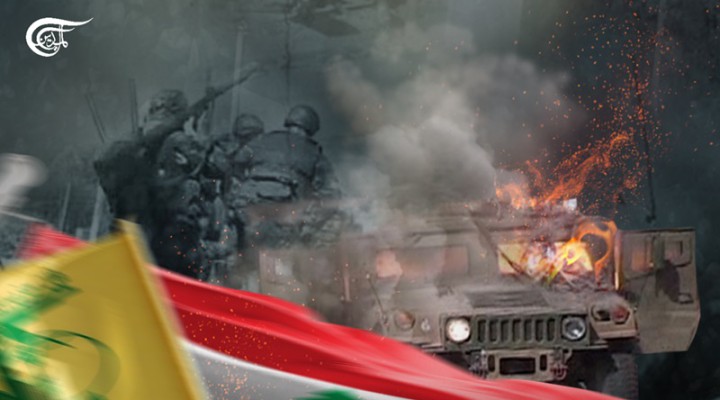The 2006 war on Lebanon: A pilot for Re-setting the Military Balance?

Hezbollah had taken the trouble to ‘deep-study’ their enemy; to know their strengths and weaknesses, and therefore know how to mount the feints to deceive them.
Re-reading my account (with Mark Perry) of the 2006 war — long in the works, but ostensibly triggered by “Israel’s” military response to the abduction by Hezbollah of two soldiers, and the killing of eight others on 12th July — evokes reminisces, particularly this week – as the war in Ukraine reaches its inflection point. I naturally see resonances between the two wars, but also a major lacuna in that earlier piece.
In Beirut at the time, watching the nightly attacks on Dahiyeh and later in the south, I recall being on edge. The war outcome was not at all clear; it all seemed to hang in the balance to the very last.
With hindsight, I now see how iconic it was, and how it served as the ‘pilot’ to a shift in the global military balance of power, which — when elaborated by various others — has contributed to an upending of the global paradigm.
This was not evident to me then — that the war would come to represent a major military transformation of thinking. But that is not so surprising perhaps?
What was so revolutionary? Well, western states were accustomed to complete domination of the airspace. It had allowed them to fly where they wanted, when they wanted, as they wanted. Hezbollah had no air force. And none in the Resistance world had an answer to this hard fact.
But Hezbollah and Iran did conceive an answer: Their ‘Air Force’ was to be simple-to-manufacture missiles produced in quantity, and dispersed widely in concealed launch sites (i.e. there was never to be a central airbase to the missile force that could be destroyed). It worked — missiles and drones have become ubiquitous, as the answer to conventional air power.
It had a secondary benefit, too. The West, habituated to the Air Dominance paradigm, did not bother much with investing in air defenses, on the assumption that their airspace dominance would allow them instantly to destroy any non-western Air Force. However the missile/drone approach, of course, facilitated a concomitant focus on air defense missiles, in parity with ground missiles. Today, it is Russia that has the world’s most advanced air defense layered systems (the US lags far behind).
Secondly, Hezbollah had pioneered ‘deep-study’ intelligence principles. As Western (and Israeli) Intel slumped into lazy reliance on the hubristic conviction that the Western sphere was the lucky inheritor of a superior cultural DNA, so Israeli Intelligence just could not believe that they had got their analysis so wrong:
“The initial attack on Hezbollah’s marshalling points and major bunker complexes, which took place in the first 72 hours of the war – failed. On July 15, the IAF targeted Hezbollah’s leadership in Beirut. This attack also failed. At no point during the war was any major Hezbollah political figure killed, despite Israel’s constant insistence that the organization’s senior leadership had suffered losses.
“According to one US official who observed the war closely, the IAF’s air offensive degraded “perhaps only 7%” of the total military resource assets available to Hezbollah’s fighters in the first three days of fighting and added that, in his opinion, Israeli air attacks on the Hezbollah leadership were “absolutely futile””.
Hezbollah had taken the trouble to ‘deep-study’ their enemy; to know their strengths and weaknesses, and therefore know how to mount the feints to deceive them. General Gerasimov of the Russian High Command is now the acknowledged expert in military feints and deceit.
“Moreover … Hezbollah had successfully “turned” a number of Lebanese civilian ‘assets’ reporting to Israeli intelligence officers on the location of major Hezbollah military caches in southern Lebanon. In some small number of crucially important cases, Hezbollah senior intelligence officials were able to ‘feedback’ false information on their militia’s most important emplacements to Israel – with the result that Israel target folders identified key emplacements that did not, in fact, exist”.
Perhaps the ‘insurrection that never was’ on 24 June 2023 in Russia was an extension of these techniques — who knows?
The third important innovation was the rejection of the western narrative of technological superiority:
“Hezbollah intelligence officials had perfected their signals-intelligence capability to such an extent that they could intercept Israeli ground communications between Israeli military commanders. Israel, which depended on a highly sophisticated set of ‘frequency hopping’ techniques that would allow their commanders to communicate with one another – underestimated Hezbollah’s ability to master counter-signals technology”.
The Israeli and US political Establishments were shocked by the failure of “Israel’s” forces to accomplish its military goals in the war – PM Olmert and his security cabinet had shown contempt for their enemy. Whereas the cabinet demanded minute details of the IOF’s plan for the first three days of the war, they failed to articulate clear political goals or to sketch out a political exit strategy — should the offensive fail.
In many respects, Olmert and his cabinet were captives of an unquestioned belief in the efficacy of Israeli deterrence. Like the Israeli public, they viewed any questioning of IOF capabilities as sacrilege.
Today’s war in Ukraine has eerie similarities — the unquestioned belief in NATO prevailing; the denigration and underestimation of their Russian adversary; and a lack of in-depth thinking, beyond the launch of a Ukrainian counter-offensive.
Some clearly have assimilated the lessons from 2006. Some have not.
 TheAltWorld
TheAltWorld 
E
The so called mighty army of Israel was not so mighty against more or less a Gorilla army, considering Israelis have advanced weapons, technology’s that didn’t help them out to much.
This time around HEZBOLLAH is much stronger smarter army than people think.